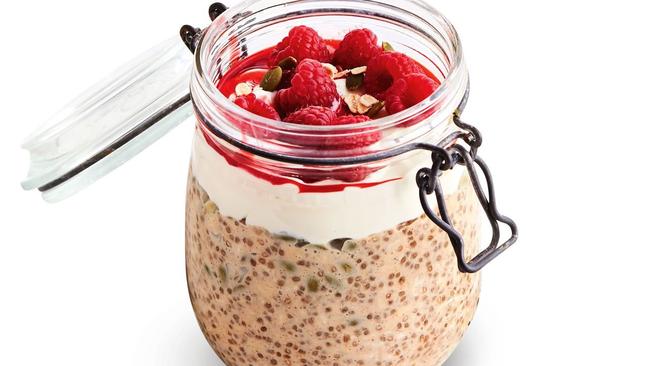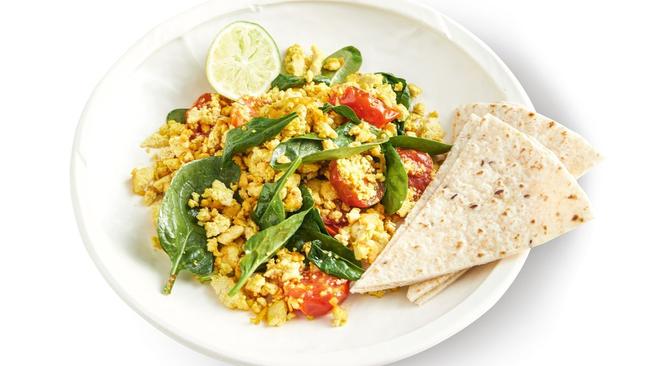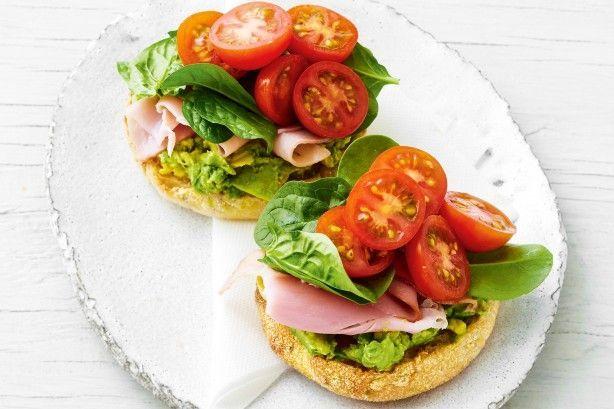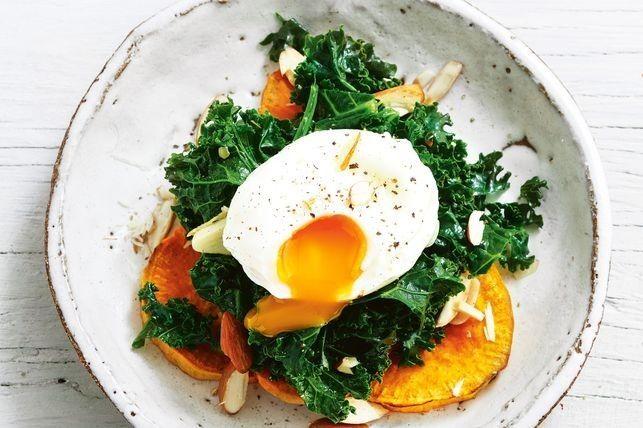The best food to eat for breakfast (and when to eat it), according to a nutritionist
Chrissy Freer, nutrition editor, gives us the best simple guidelines for healthy breakfasts.

Food
Don't miss out on the headlines from Food. Followed categories will be added to My News.
In recent years, as the popularity of intermittent fasting and time-restricted eating has grown, the advice around when to eat (and what to eat) for breakfast has become more complex.
Is breakfast still ‘the most important meal of the day’? Is it okay to skip breakfast and go straight to lunch? And are savoury breakfasts healthier than sweet ones?
The short answer to this question is: it depends on what your health goals are. So we asked taste’s nutrition editor, Chrissy Freer, to suggest different breakfast options for three common health needs: weight-loss, energy, and reducing stress.

Our nutritionist’s healthy breakfast recommendations
Choosing a healthy breakfast, and the best time is to eat it, can seem like a minefield. While we all have unique requirements and energy needs, the basic principles of what constitutes a healthy brekkie does stay the same – a balance of protein, complex carbohydrates, some good fats and added veg or fruit. Try these simple guidelines to ensure your breakfast meets your own personal nutrition and health goals.
Best breakfasts for weight loss
If weight loss is your goal, it can be tempting to skip breakfast, but unless you’re intermittent fasting (such as the 16:8 regime), having a balanced and adequate breakfast can help you meet your weight-loss goals. For instance, undereating early in the day can lead to overeating in the afternoon and evening.
Including both a good source of protein (e.g. eggs, high-protein natural yoghurt, legumes, tofu or protein powder) and fibre (wholegrains) is the winning combo as both are very satiating (keeping you fuller for longer) and help reduce sugar cravings.
Add volume to your plate (plus further boost fibre and nutrients) with the addition of some non-starchy vegetables or fruit (spinach, tomatoes, zucchini, citrus or berries are ideal) for negligible kilojoule content. Finish with a small serve of good fats, such as ¼ avocado or a sprinkle of nuts or seeds.
For a balanced breakfast that can help you with your weight loss goals try this spicy avocado toasted muffin with shaved ham and spinach.

Or, if you’re looking for a meat-free option, try this vegan scrambled tofu breakfast
Early morning exerciser: best food to eat in the morning for energy
Navigating breakfast can seem tricky if you work out in the morning. Depending upon the intensity and time of the workout, having a small pre workout snack consisting of some easy to digest carbs and protein at least 45 minutes before exercising can boost energy (without causing GI distress).
Post workout (or pre workout if you exercise later in the morning and can have breakfast 2-3 hours beforehand), having a balanced breakfast will help to maximise rebuilding glycogen (carbohydrate reserves) and muscle protein stores and thereby promote recovery.
Choose a breakfast that contains adequate (at least 20g) protein (good sources include eggs, Greek or high protein natural yoghurt, legumes, cottage cheese, protein powder, or lean chicken/turkey) with evidence consuming high-quality protein within two hours of exercise will optimise muscle repair and muscle growth.
It is also important to include some complex carbohydrates (e.g., wholegrains such as oats, barley, or quinoa, wholegrain bread or high starch veg or fruit such as sweet potato or banana) to replenish glycogen reserves. Aerobic exercise (e.g. running) and longer duration (greater than an hour) activities require more carbohydrate intake than, say, resistance training.
Try this roasted sweet potato, wilted garlic kale, poached egg and almonds to give yourself a protein-rich midweek meal early in the day. Serve with your favourite wholegrain bread to add some additional carbohydrates to the mix, if you like.

Tip: You can save heaps of time when you make poached eggs in a pie maker.
Stress beating breakfast: what foods are good for morning anxiety?
If you are feeling stressed, anxious or exhausted, breakfast really is imperative as it sets your energy, blood sugar levels and mood for the day. Avoid highly processed breakfast cereals and high sugar foods and instead opt for low GI sources of carbohydrates such as rolled oats, wholegrain sourdough bread or low GI fruit (to prevent sugar spikes and then slumps).
It is important to prioritise protein on your plate (to further stabilise blood sugar levels), and – even better – include some mood-boosting omega-3 fatty acids (such as salmon, linseeds, walnuts or chia seeds). Also, be mindful of caffeine intake, and ideally have your morning coffee after food. For those wanting a lower caffeine option, green tea, high in the amino acid L-theanine – which may reduce anxiety – is a great option. Ideally, aim to have breakfast within two hours of waking.
These overnight chia oats are prepared the night before for a quick and easy morning!

*This information does not constitute or replace professional medical or dietetic advice received by individuals.
Originally published as The best food to eat for breakfast (and when to eat it), according to a nutritionist


